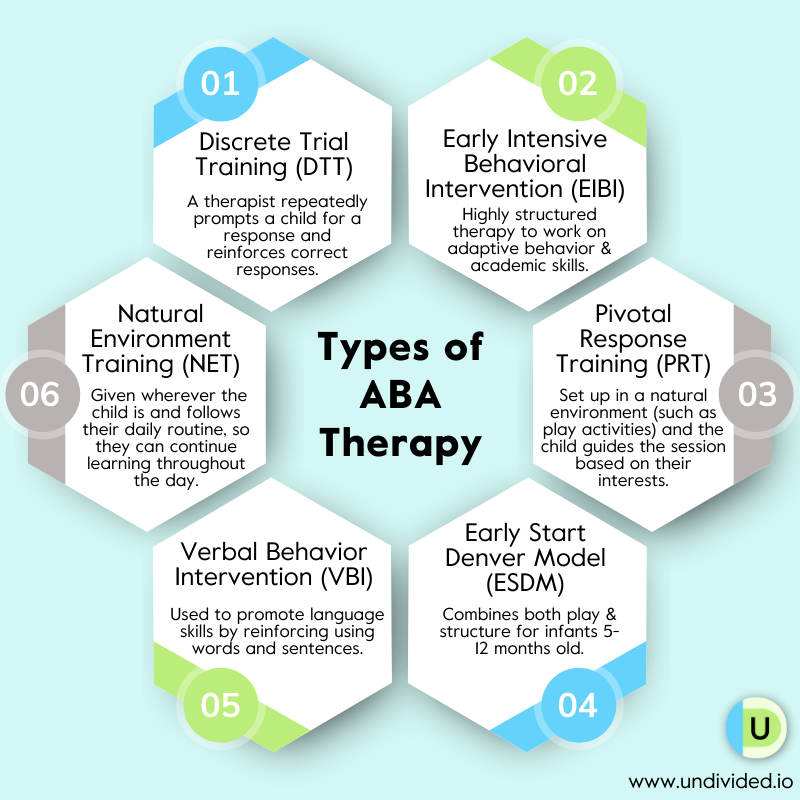Comprehending the Effect of Behavior Treatment on Mental Wellness
Behavior therapy plays a crucial duty in improving mental health and wellness and wellness. It utilizes organized strategies to identify and modify adverse behaviors and thought patterns. By fostering self-awareness and psychological durability, individuals can create much healthier coping strategies. The subtleties of its performance throughout various mental wellness concerns and its combination into day-to-day life remain complicated. Exploring these aspects discloses the profound impact Behavior Therapy can carry total quality of life.
The Principles of Behavioral Treatment
Behavioral Treatment is based in the concepts of learning concept, highlighting the function of evident actions in psychological health and wellness therapy. This strategy is based on the property that actions are learned and can be unlearned or changed with ideal treatments. It concentrates on the interaction in between thoughts, activities, and sensations, presuming that transforming maladaptive behaviors can lead to improved emotional and mental well-being.
Central to this therapy is the idea of reinforcement, where positive or negative stimuli affect behavior modification. Furthermore, Behavior Therapy prioritizes measurable outcomes, intending to track progression through observable modifications. It also recognizes the value of context, supporting for an understanding of environmental aspects that add to behavior patterns. By applying these concepts, Behavioral Treatment addresses a variety of mental health problems, making it a efficient and flexible therapy choice for individuals looking for to boost their mental wellness through structured behavioral adjustments.
Usual Strategies Made Use Of in Behavior Therapy
Typical techniques made use of in Behavioral Treatment play a crucial role in resolving different psychological health issues. This discussion will certainly highlight cognitive behavior strategies, direct exposure therapy methods, and reinforcement strategies, each contributing distinctly to the restorative procedure. Understanding these methods can enhance awareness of exactly how Behavior Therapy successfully promotes mental health.
Cognitive Behavior Strategies
While different methods exist within the domain name of treatment, cognitive behavior methods stick out for their structured methods aimed at dealing with negative thought patterns and actions. These techniques usually involve identifying distorted cognitions, challenging these thoughts, and replacing them with even more well balanced point of views. Common strategies include cognitive restructuring, where individuals find out to recognize and modify their automated adverse ideas, and behavior activation, which motivates interaction in positive activities to deal with feelings of anxiety. Furthermore, mindfulness techniques are frequently integrated to boost awareness of ideas and feelings without judgment. By systematically functioning via these strategies, people can create healthier coping devices, ultimately resulting in enhanced mental health and durability versus different psychological obstacles.
Direct Exposure Therapy Techniques
Direct exposure therapy methods are widely recognized as reliable strategies within Behavior Treatment, particularly for treating anxiety disorders, phobias, and post-traumatic anxiety problem (PTSD) These methods entail steady exposure to been afraid stimulations, enabling individuals to face and refine their concerns in a regulated atmosphere. Common techniques consist of organized desensitization, where clients are gradually exposed to anxiety-provoking circumstances while practicing leisure techniques. One more strategy is swamping, which engages individuals in their anxieties for an extensive duration, usually resulting in fast desensitization. Digital reality exposure treatment has also gained popularity, making it possible for clients to engage with online atmospheres that imitate their worries. In general, direct exposure therapy techniques aim to minimize evasion habits and aid people establish coping techniques, eventually boosting psychological wellness and wellness.
Reinforcement Techniques Clarified
Reinforcement methods play a vital role in Behavior Therapy, employing various techniques to urge desired actions and reduce undesirable ones. Positive support entails rewarding a behavior, making it more probable to reoccur. This can consist of verbal praise, symbols, or concrete rewards. Negative support, on the various other hand, entails removing an unpleasant stimulation when a wanted actions happens, thus raising its frequency. Penalty techniques may additionally be made use of, where an unwanted effect complies with an undesirable habits to minimize its event. In addition, shaping methods progressively strengthen closer estimations to the desired actions. By using these techniques methodically, therapists can efficiently change habits patterns, advertising mental wellness and enhancing general health for individuals looking for support in managing their problems.
Efficiency of Behavior Therapy for Various Mental Health Issues
Behavioral Therapy has actually revealed significant performance in treating different mental wellness issues, particularly stress and anxiety conditions and anxiety. Research indicates that people going through Behavior Treatment frequently experience notable renovations in handling their symptoms. This discussion will certainly explore the particular success prices linked with these treatments for anxiousness and anxiety.
Anxiety Problems Treatment Effectiveness
Anxiety disorders can substantially impair everyday functioning, research study regularly shows the efficacy of behavior treatment in relieving signs. Numerous kinds navigate to these guys of Behavioral Therapy, consisting of cognitive-behavioral therapy (CBT), have actually shown significant success in dealing with anxiety problems such as generalised anxiety problem, social anxiety condition, and panic attack. These therapies concentrate on recognizing and changing adverse thought patterns and habits, equipping people with dealing approaches to manage their anxiety. Studies show that people commonly experience a reduction in anxiety levels, boosted coping devices, and boosted general high quality of life following therapy. Additionally, the structured nature of Behavior Treatment allows for quantifiable development, making it a recommended choice among mental health and wellness professionals for dealing with anxiety-related issues efficiently.
Clinical Depression Management Success Fees
Stress and anxiety disorders and depression typically co-occur, leading to overlapping therapy techniques, particularly in the domain of Behavioral Treatment. Study suggests that cognitive-behavioral treatment (CBT), a prominent form of Behavior Treatment, has demonstrated significant success in managing clinical depression. Studies reveal that around 60-70% of individuals getting CBT for clinical depression experience a noteworthy reduction in signs. This effectiveness is credited to CBT's structured approach, which gears up individuals with coping systems and cognitive restructuring strategies. Additionally, the combination of Behavior Therapy with pharmacotherapy can boost success rates, using a detailed strategy for those dealing with severe anxiety. Generally, Behavioral Therapy continues to be a crucial intervention for enhancing mental health outcomes in individuals encountering depression.
The Role of a Specialist in Behavioral Therapy

Therapists act as guides and facilitators in the method of Behavioral Therapy, assisting customers navigate their difficulties with structured interventions. They employ various strategies, such as cognitive restructuring and exposure treatment, to help clients in recognizing and changing maladaptive habits and assumed patterns. By establishing a non-judgmental and supportive setting, specialists promote trust, which is crucial for effective restorative involvement.
Therapists additionally educate customers about the concepts of Behavioral Therapy, enabling them to comprehend the reasoning behind details methods. This expertise encourages customers to take an active function in their therapy. Furthermore, specialists keep an eye on development, changing interventions as required to guarantee the finest outcomes. They offer responses and support, strengthening positive adjustments and helping clients develop coping techniques for future difficulties. In general, the therapist's role is critical in guiding clients towards enhanced mental wellness and improved wellness with structured restorative methods.

Long-Term Conveniences of Behavior Modification
While lots of individuals look for Behavioral Therapy to deal with immediate obstacles, the long-lasting benefits prolong far past preliminary sign alleviation. One substantial advantage is the growth of coping methods that enhance emotional resilience, permitting individuals to browse future anxieties much more effectively - ABA Therapy. Customers commonly report boosted self-awareness, which cultivates a higher understanding of their habits and ideas, promoting much healthier decision-making processes
Additionally, Behavior Treatment can cause sustained enhancements in interpersonal connections. By learning efficient communication and problem-solving abilities, individuals may experience deeper links with others, reducing feelings of isolation. Numerous discover that these restorative methods contribute to a positive technique to mental wellness, enabling them to manage potential troubles before they intensify.
Inevitably, the long-lasting impact of Behavior Therapy can cause a more fulfilling life, characterized by boosted psychological security, boosted relationships, and a better feeling of general wellness.
Incorporating Behavior Therapy Into Every Day Life
Building on the long-lasting benefits of Behavior Therapy, incorporating its concepts right into life can additionally boost psychological strength and health. Individuals can start by incorporating basic techniques, such as cognitive restructuring, which includes challenging negative ideas and changing them with more favorable choices. Establishing a routine that consists of mindfulness techniques, like meditation or deep breathing, can additionally promote recognition of feelings and actions.
Establishing possible goals and celebrating small triumphes can enhance self-efficacy and motivation. Involving in routine physical activity not only increases state of mind but also aids keep the discipline learned through treatment. Additionally, fostering encouraging connections and open communication can supply important emotional support. By proactively applying these Behavioral Therapy strategies, individuals can grow a healthier way of thinking, navigate day-to-day difficulties a lot more effectively, and contribute to an overall enhanced lifestyle.
Often Asked Concerns

Just How Long Does Behavior Modification Typically Last?
Behavior Treatment normally lasts from a few weeks to several months, depending on details concerns and individual see this here needs being attended to. Sessions generally take place weekly, with progress analyses leading the duration of the treatment.
Can Behavioral Treatment Be Done Online?
Behavior Treatment can indeed be conducted on the internet, making use of video clip conferencing systems. This technique uses adaptability and availability, allowing individuals to engage with their therapists from the comfort of their homes, keeping restorative connection.
What Should I Anticipate in My Initial Session?
In the first session, clients can anticipate an initial discussion, analysis of their worries, and establishment of therapy goals - ABA Therapy. The specialist might discuss the procedure and deal with more helpful hints any kind of inquiries to create a comfortable setting
Exist Any Kind Of Adverse Effects of Behavioral Treatment?
Behavioral Treatment usually has few negative effects, but some individuals may experience momentary pain, psychological distress, or raised anxiousness as they challenge tough thoughts and actions. These responses normally decrease as therapy progresses and dealing techniques develop.
How Do I Locate a Qualified Behavioral Specialist?
To find a qualified behavioral specialist, individuals ought to seek suggestions from doctor, inspect on-line directory sites, and validate credentials. Additionally, reading evaluations and organizing initial examinations can help analyze compatibility and competence prior to making a selection.
Direct exposure treatment techniques are commonly identified as reliable techniques within behavioral therapy, specifically for treating anxiousness problems, fears, and post-traumatic stress and anxiety condition (PTSD) Different kinds of behavior therapy, including cognitive-behavioral treatment (CBT), have actually revealed substantial success in dealing with anxiety disorders such as generalized anxiety problem, social anxiety disorder, and panic problem. Study indicates that cognitive-behavioral treatment (CBT), a famous kind of behavioral treatment, has demonstrated substantial success in managing anxiety. While lots of people seek behavioral treatment to attend to immediate difficulties, the long-lasting benefits extend far beyond preliminary sign alleviation. Behavior therapy usually has few side impacts, however some people might experience short-term pain, psychological distress, or raised anxiety as they challenge difficult thoughts and actions.